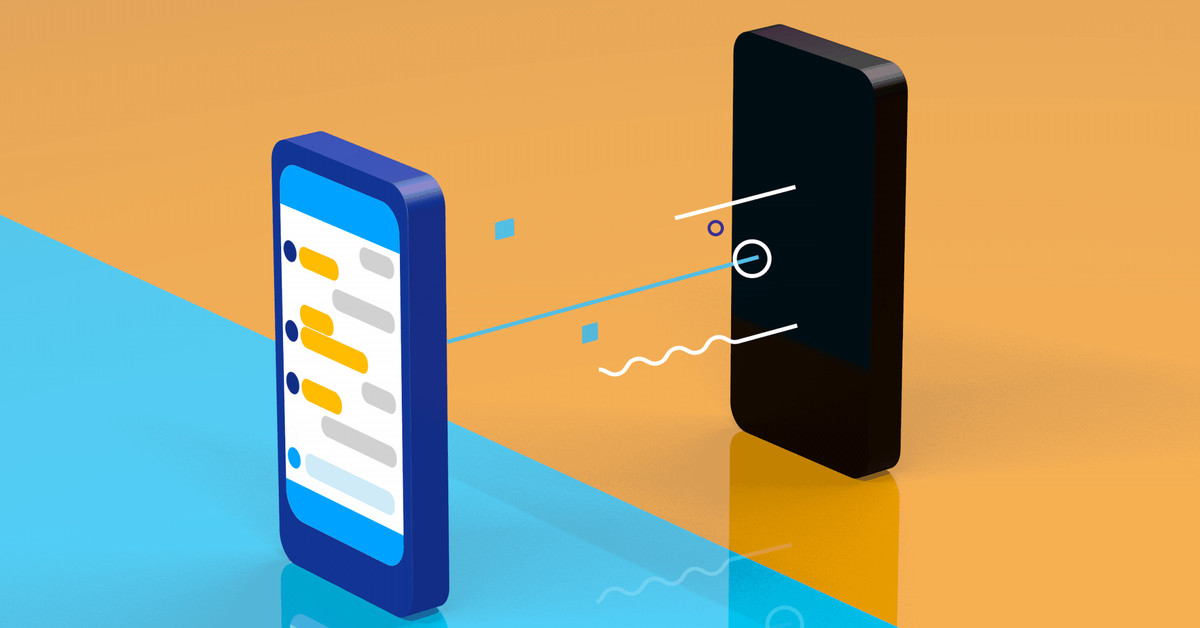
Beginning next year, Verizon will join AT&T and T-Mobile in preloading Android Messages as the default texting app on all Android phones it sells. It’s the final step for making RCS Chat — the next-gen standard designed to replace SMS — the default experience for Android. In the US, that only leaves one large cohort that will not use RCS as a default SMS replacement: iPhone users.
Verizon has also said it will fully support interoperability between carriers, so in theory the improved images, video, read receipts, and group chats should just work — assuming everybody you’re texting with is also using Android Messages.
Verizon was the last of the big three US carriers to get on board with Google’s latest strategy to push RCS as the new default for texting. After years of cajoling, shaming, and downright pleading, the company has made deals with carriers to simply use the standard Android Messages app, which supports RCS by default.
Hiroshi Lockheimer, senior vice president of Android, Chrome OS, and the Play Store, is quick to note that end-to-end encryption for RCS inside Android Messages is also in the process of rolling out. It’s available for “peer-to-peer” chats (i.e. a chat with one other person), but group chats are on the roadmap as well.
Default, end-to-end encrypted chats between Android phones raise an interesting conundrum for Apple. Next year, texts between Android phones and iPhones will be less secure than texts within those two ecosystems — because they will be on SMS instead of RCS.
Apple’s Messages app offers end-to-end encryption if all users are on the iMessage system, and it has shown no appetite to either offer iMessage on Android nor to adopt RCS on the iPhone. Google, meanwhile, is happy to take the opportunity to needle Apple by openly inviting it to use RCS.
“Going forward, the default messaging experience on Android is going to be more secure,” says Lockheimer, who has previously invited Apple to adopt RCS. “The fallback messaging experience on the other platform will not have encryption if it’s still SMS. I think that that is a pretty interesting dynamic and I would hope that as everyone focuses on security and privacy it becomes an important part of the discussion.”
Lockheimer wouldn’t confirm if Google is in active discussions with Apple, but it doesn’t seem as though RCS is likely to come to the iPhone soon and the company has declined to comment on the matter several times over the years. But there is clearly a pressure campaign on, even if it’s not very strident. Speaking about Apple adoption, Lockheimer says, “I actually do think getting the three major carriers in the US to adopt RCS in a consistent manner is a big part of the equation.”
Currently, there are 473 million monthly active RCS users around the globe, according to the GSMA. Adoption in the US is likely to boost that number by quite a bit. Google has no plans to try to introduce a messaging app that supports RCS on the iPhone.
Although RCS has been closely associated with Google, the company often points to the fact that it is meant to be a standard that is shared by the entire mobile industry and managed by the GSMA. Carriers are able to use their own RCS infrastructure instead of Google’s. Still, RCS is closely tied to Google in many people’s minds and Google offers RCS services to carriers and will even allow consumers to directly use RCS via its services if their carrier doesn’t offer it. Google began pushing RCS as the new texting experience on Android after its own messaging attempts (notably Hangouts and Allo) floundered.
Lockheimer claims that Google prefers the slightly more open RCS approach to a Google-owned texting solution being the default on Android. “We don’t think there should be one messaging app to rule them all. We fully realize people are going to use multiple messaging apps,” he says.
As for Verizon, it will continue to offer its Verizon Message+ (VM+) application alongside Android Messages for customers who wish to use it. It’s a maligned app and for good reason: it’s rife with awkward interface controls and Verizon branding — but since it’s really the only way to sync Verizon text messages across different devices, it’s going to stick around.
Apparently Verizon and Google intend to find a way to ensure that VM+ and Android Messages share a text message database so that messages stay in sync. That’s potentially a first step toward opening up RCS to third-party applications — something that’s been impossible so far.
Google’s deal with Verizon caps a flurry of RCS activity that kicked off this past March with the T-Mobile deal, then the end of the encrypted chat beta in June, and finally a deal with AT&T in June as well.
Unfortunately, as with all things Android and RCS, the results of that activity won’t be felt by users until later. Verizon won’t be making the switch to Android Messages until 2022.
Article From & Read More ( Verizon is also switching to Android Messages as default for RCS - The Verge )https://ift.tt/3eEiHq9
Technology
Bagikan Berita Ini














0 Response to "Verizon is also switching to Android Messages as default for RCS - The Verge"
Post a Comment